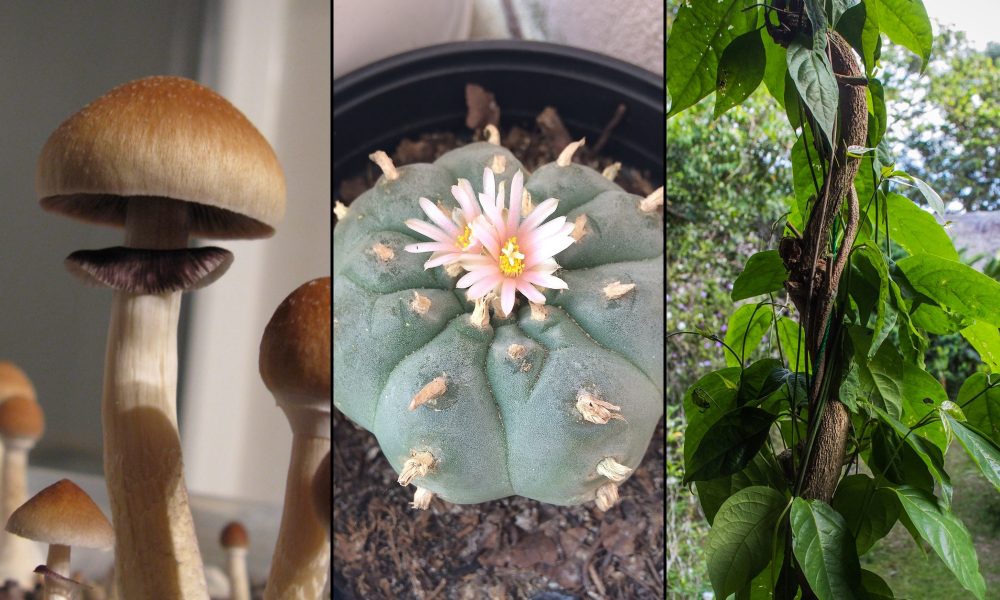The Maryland House of Delegates has passed a bill to create a psychedelics task force responsible for studying possible regulatory frameworks for therapeutic access to substances such as psilocybin, mescaline and DMT. It would be charged specifically with ensuring “broad, equitable and affordable access to psychedelic substances” in the state.
A week after being approved in the House Health and Government Operations Committee, with amendments, the full chamber approved the measure measure from Del. Pam Guzzone (D) on third and final reading in a 136-1 vote on Wednesday, sending it to the Senate.
Originally, the “Task Force on Responsible Use of Natural Psychedelic Substances” created by the legislation would have been staffed and administered by the state Department of Health, but it was amended in committee to instead fall under the Maryland Cannabis Administration (MCA).
The bill as introduced would have more specifically required task force members to explore and issue recommendations on aspects of policy such as “systems to support statewide online sales of natural psychedelic substances with home delivery” and “testing and packaging requirements for products containing natural psychedelic substances with clear and accurate labeling of potency,” those mandates were removed in the approved amendment, however.
Instead, it now more generally directs the body to examine “permitting requirements, including requirements regarding education and safety,” “access to treatment and regulated support” and “production of natural psychedelic substances.”
Other provisions asking for recommendations on expunging prior convictions for psychedelics and releasing people incarcerated for such offenses remain in the bill as approved, along with a mandate to make recommendations on potential civil penalties for “nonviolent infractions involving the planting, cultivating, purchasing, transporting, distributing, or possessing of or other engagement with natural psychedelic substances.”
The composition of the task force was also revised, reducing its size from a 25-member body to a 19-member panel of experts and appointees of the governor, legislative leaders and various state agencies.
While the bill mandates the panel to look at psilocybin, psilocin, dimethyltryptamine and mescaline, the newly adopted amendment also allows it to consider other substances within its discretion. Its recommendations would be due to the governor and legislature by July 31, 2025.
There’s also a companion version of the psychedelics measure that’s been introduced in the Senate and is scheduled for a hearing on Thursday.
A number of state legislatures are pursuing psychedelics policy reform this session, with a focus on therapeutic access.
—
Marijuana Moment is tracking more than 1,000 cannabis, psychedelics and drug policy bills in state legislatures and Congress this year. Patreon supporters pledging at least $25/month get access to our interactive maps, charts and hearing calendar so they don’t miss any developments.
Learn more about our marijuana bill tracker and become a supporter on Patreon to get access.
—
For example, on Monday an Arizona House panel approved a Senate-passed bill to legalize psilocybin service centers where people could receive the psychedelic in a medically supervised setting.
Last week a Missouri House committee unanimously approved a bill to legalize the medical use of psilocybin by military veterans and fund studies exploring the therapeutic potential of the psychedelic.
Connecticut lawmakers held a hearing on a bill to decriminalize possession of psilocybin last week.
A Vermont legislative panel continued its consideration this month of a bill that would legalize psilocybin in the state and establish a work group on how to further regulate psychedelics for therapeutic use.
The governor of New Mexico recently endorsed a newly enacted resolution requesting that state officials research the therapeutic potential of psilocybin and explore the creation of a regulatory framework to provide access to the psychedelic.
An Illinois senator recently introduced a bill to legalize psilocybin and allow regulated access at service centers in the state where adults could use the psychedelic in a supervised setting—with plans to expand the program to include mescaline, ibogaine and DMT.
Alaska House and Senate committees are considering legislation that would create a task force to study how to license and regulate psychedelic-assisted therapy in anticipation of eventual federal legalization of substances like MDMA and psilocybin.
Lawmakers in Hawaii are also continuing to advance a bill that would provide some legal protections to patients engaging in psilocybin-assisted therapy with a medical professional’s approval.
New York lawmakers also said that a bill to legalize psilocybin-assisted therapy in that state has a “real chance” of passing this year.
An Indiana House committee, meanwhile, approved a Republican-led bill that would fund clinical research trials into psilocybin that has already cleared the full Senate.
Bipartisan California lawmakers also recently introduced a bill to legalize psychedelic service centers where adults 21 and older could access psilocybin, MDMA, mescaline and DMT in a supervised environment with trained facilitators.
A Nevada joint legislative committee held a hearing with expert and public testimony on the therapeutic potential of substances like psilocybin in January. Law enforcement representatives also shared their concerns around legalization—but there was notable acknowledgement that some reforms should be enacted, including possible rescheduling.
The governor of Massachusetts recently promoted the testimony of activists who spoke in favor of her veterans-focused bill that would, in part, create a psychedelics work group to study the therapeutic potential of substances such as psilocybin.
VP Harris To Meet With Marijuana Pardon Recipients At White House This Week As Biden Leans Into Issue Ahead Of Election
Photo elements courtesy of carlosemmaskype and Apollo.
Read the full article here









